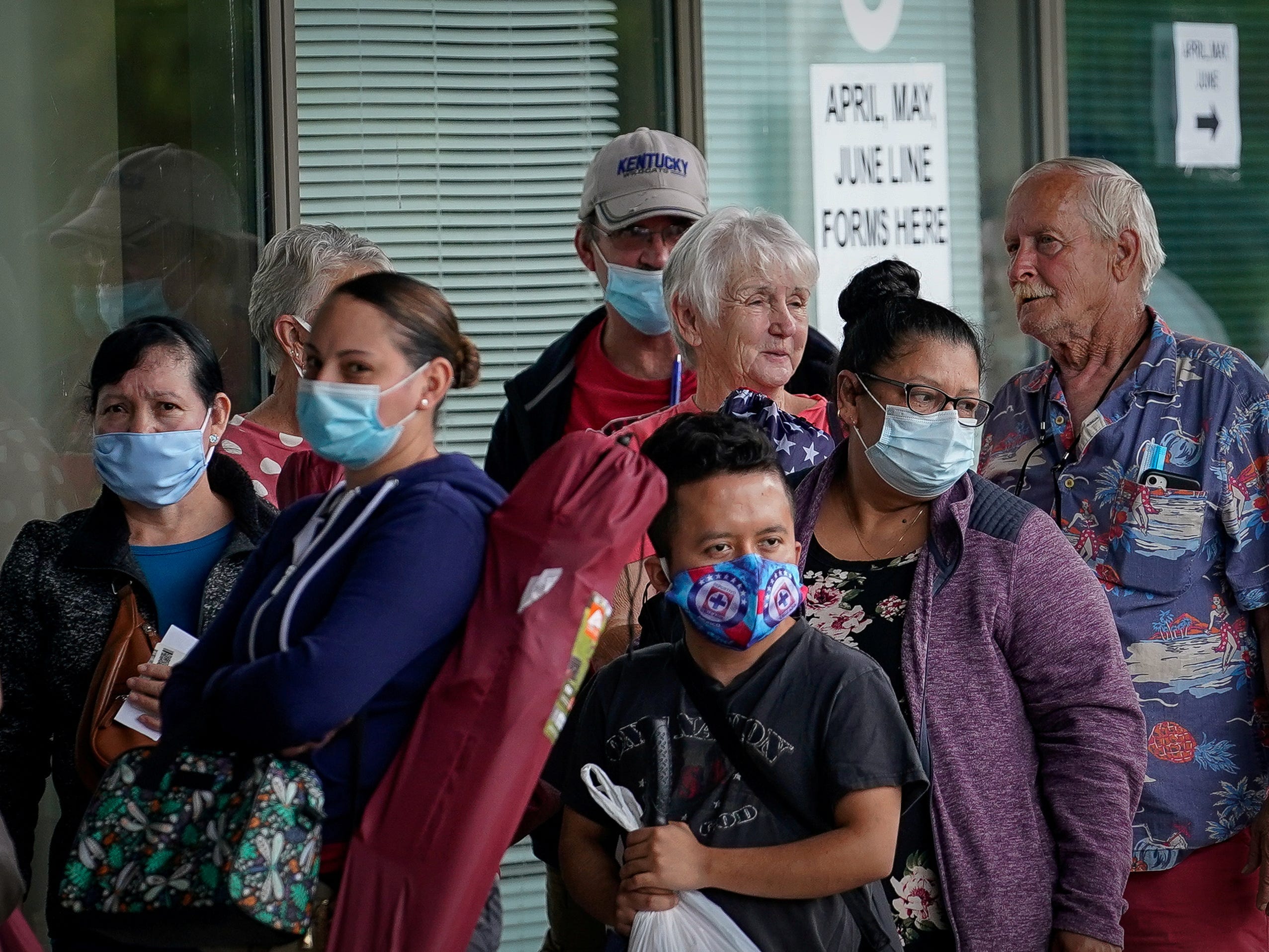
Reuters
- Paul Constant is a writer at Civic Ventures, a cofounder of the Seattle Review of Books, and a frequent cohost of the “Pitchfork Economics” podcast with Nick Hanauer and David Goldstein.
- On the latest episode of Pitchfork Economics, Hanauer and Goldstein respond to listener questions, including one on what the manifesto of a perfect political party should look like.
- Goldstein said that the economy is people — and policies should benefit as many people as possible.
- The coronavirus economic downturn has removed people from the economy, especially women — and so policies tailored towards them will benefit the whole economy.
- Visit Business Insider’s homepage for more stories.
This week’s episode of Pitchfork Economics features listener questions from around the world about a broad array of topics, from the motivation of trickle-downers to the effectiveness of divestment as a strategy. Hosts Nick Hanauer and David Goldstein recommend books to convert economic skeptics away from neoliberal economics, and they discuss the core fundamentals of their economic philosophy.
One question in particular really drills down to the heart of what a more inclusive economic system should value. A listener named Stu from New Zealand writes in to ask, “What should the manifesto of the perfect political party look like? What are the absolute core principles that should be addressed?”
“We say the economy is people,” Goldstein said.
“We believe in that because economic progress is the product of a feedback loop between increasing amounts of innovation and increasing amounts of demand,” Hanauer said. That means “that the more people we deliberately, systematically, and intentionally include in our economy, the better it will work.”
Goldstein added: “The more people you include in the economy, the faster and more prosperous it grows. I think that’s true about a functional democracy as well: The country is people .. .that should be our number-one concern: We want our people to do better — not our capital, or our businesses, or GDP, or any other metric you can think of.”
“This is why I hate the word capitalism — because it implies that capital, or capitalists, are the heart of our economy,” Goldstein said. “It’s not. It’s people — people putting their knowledge and know-how to work, which is how we improve the lives of everybody.”
Stu's question, while about party platforms, helps to define what should be a clear litmus test for economic and democratic policy going forward: does this policy broadly benefit as many people as possible?
This idea of putting people at the heart of the economy clearly identifies why the economic downturn that has accompanied the coronavirus pandemic is the worst economic catastrophe to hit the United States since the Great Depression: Because it has completely removed people from the economy.
And those people are not being removed equally. In fact, very specific people are being targeted by these economic losses: CNBC reported last week that of the "nearly 1.1 million workers ages 20 and over" who are no longer looking for work after dropping out of the labor force in August and September, "865,000 of them were women, a number that is four times higher than the 216,000 men who also left the workforce."
Citing National Women's Law Center analysis, CNBC's Courtney Connley writes:
"Black women and Latinas both saw double-digit unemployment rates in September at 11.1% and 11%, respectively, according to NWLC data. That's compared to White men having an unemployment rate of 6.5% and White women having an unemployment rate of 6.9%."
These numbers are disastrous — not just for women of color, but for everyone.
A regressive economy that only serves men, and largely white men at that, is not an economy that meets the needs of its people. It could take years to make up the gender gap that's been expanded during this recession.
The hundreds of thousands of women who have been removed from the labor force aren't rising to fill management roles, they're losing marketable skills with every week of unemployment, and their pay is decreasing in comparison with their still-employed male peers. That lack of economic power translates into a lack of political power.
It's not hyperbolic to say that without immediate stimulus relief which directly addresses this gender gap, a whole generation of American women could fall behind.
And without the specific skills, experiences, and perspectives of those women, the whole economy will suffer.
That's why the work of an economist named Michelle Holder is so important at this moment in history. As the Economic Policy Institute's Anna Gifty Opoku-Agyeman noted this summer, Holder believes that any and all economic relief policies should be centered directly on improving economic outcomes for Black women, specifically. EPI explains:
"Black women are the core of the nation's economy, holding the front-line jobs and running small businesses, and they are more often the single heads of households in their communities. If they are elevated through policy, including everything from paid sick leave to stimulus programs targeted directly toward them, the economy at-large will benefit."
In other words, because women of color are taking the brunt of the impact of the coronavirus recession, policies that are tailored to improve their economic status will be good for the whole economy. By focusing directly on those who have been excluded by this recession, it's easier to build an American recovery that includes everyone in its prosperity.
Dit artikel is oorspronkelijk verschenen op z24.nl
